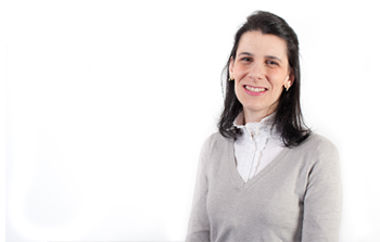PhD in Urban Environmental Engineering
Current position: Assistant Professor at the University of Campinas, Brazil
Research focus: life cycle assessment, social analysis, behaviour modelling, and computational models using autonomous agents
Though her interests are broad, Ana is keen on the effects of consumer behaviour and public policies on solid waste management and in the manufacturing and product’s design actively involved in this process. In 2015 Ana published the book “Waste Prevention Policy and Behaviour”, which outlines how waste prevention policies enter the private, domestic sphere, offering insights for generating behavioural change at the household level and, thus, moving larger communities towards sustainable waste management.
2013 International Climate Protection Fellowship from the Alexander von Humboldt Foundation, Germany
CV as submitted for the Green Talents award (2011):
University of Sheffield, United Kingdom
Research focus: waste prevention policies
During the past seven years, Dr Bortoleto has been researching different aspects of solid waste management. Although she is an environmental engineer by training, her current interest is behaviour, particularly people’s motivation for performing solid waste activities in various situations.
Dr Ana Paula Bortoleto believes that successful solid waste management is a necessary condition for sustainable development, particularly in large urban areas, and she is dedicating her work to a better understanding of people's behaviour as it relates to waste and waste management.
As an undergraduate, she studied and evaluated the recycling potential of medical solid waste. She worked with medical facilities to implement programs for solid waste management that focused on prevention and recycling.
At the graduate level, Dr Bortoleto studied the impact of solid waste management programs in Brazil in which former scavengers were engaged to promote recycling activities. And for her doctoral studies, she analysed the waste prevention behaviour of residents in Sao Paulo to gain a better understanding of the impact of the behaviour on solid waste management policies.
As an extension of her PhD thesis, Dr Bortoleto was awarded a Marie Curie International Incoming Fellowship to work at the University of Sheffield in the UK. There she is studying the waste prevention behaviour of the citizens of Sheffield, and she will compare her results to what she found in São Paulo. In addition, she will determine how public policies can keep the behaviour of citizens in mind so that the amount of solid waste that is generated can be decreased.
The jury particularly liked Dr Bortoleto’s strong research background and her international and comparative approach to studying waste management. It said it expects her current project in Sheffield to be an important contribution to the public policy discussion about how to motivate people to change the way they handle their trash.
Dr Bortoleto is keen to learn more about new approaches, methodologies and views related to behaviour analysis during her time in Germany. “On my first visit to Germany, I was very impressed by public policies adopted by the population in Berlin. I would like to learn more deeply about all of the policies and the related research that has been carried out in Germany, a country well-known for its green initiatives,” she said.
In 2015 Dr Bortoleto published “Waste Prevention Policy and Behaviour, New Approaches to Reducing Waste Generation and its Environmental Impacts”. Find more here.






